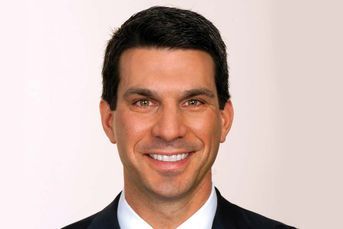Bill would grant exemption to Investment Advisors Act
Financial adviser trade groups are trying to shoot down a single section in a broad regulatory bill that…
Financial adviser trade groups are trying to shoot down a single section in a broad regulatory bill that would let some financial advisers duck securities regulations.
Introduced last month and scheduled for a hearing April 25, the measure, HB 3951, includes a provision to give thrifts a broad pass from the Investment Advisors Act of 1940.
If the provision is adopted, thrifts will join the short but growing list of those already excluded or being considered for exemption from the regulatory hoops through which registered investment advisers must jump.
“If you look like an adviser and quack like an adviser, you should be treated like one,” says David Tittsworth, executive director of the Investment Counsel Association of America, a Washington trade group for registered investment advisers.
Already, banks enjoy a broad exclusion from the 1940 act, and securities regulators continue to sit on a pending rule that would excuse certain broker-dealers from registering.
Opponents argue that excusing thrifts from the Advisors Act would allow yet another category of financial services provider to give investment advice to customers without also giving them the consumer protections afforded under the act.
They also say the exemption would allow thrifts to escape the strict regulatory supervision to which RIAs are subjected.
Along with the Financial Planning Association, Mr. Tittsworth’s group is trying to line up allies.
Early this month Mr. Tittsworth met with a staff member for House Financial Services Committee Chairman Michael Oxley, R-Ohio, one of the bill’s four co-sponsors.
Mr. Tittsworth also plans to call on other committee members.
The FPA recently shot off a letter to a handful of committee members expressing its objections.
“Things were different in 1940” when the Advisors Act was passed, says Duane Thompson, Washington-based director of government relations for the FPA, which has headquarters in Atlanta and Denver. “The thrifts want to go back to 1940 for the exemption. But we’re in the 21st century.”
Neither the FPA nor the ICAA has been invited to have representatives testify at the April 25 hearing, although that meeting likely will focus on other aspects of the bill.
The provision at issue is included in the lengthy and complex Financial Services Regulatory Relief Act of 2002 sponsored by Rep. Shelley Moore Capito, R-W.Va.
The part of the bill that nettles Mr. Tittsworth and Mr. Thompson aims to fix what thrifts view as an uneven regulatory playing field that favors banks.
Congress passed the Gramm-Leach-Bliley Act in 1999 and repealed Depression-era laws that prevented banks, insurance companies and securities firms from entering one another’s turf.
That law also exempted banks from the Advisors Act except when they act as adviser to a mutual fund.
Before Gramm-Leach-Bliley, however, banks had a complete pass. The 1999 act effectively limited that.
Thrifts, which are pushing for the change, are similar to banks, but are subject to different regulatory requirements and supervision. The category includes savings banks and savings and loan associations, which historically have specialized in real estate lending.
Carolyn Buck, chief counsel at the federal Office of Thrift Supervision, testified in support of the provision at a March 14 hearing before the Subcommittee on Financial Institutions and Consumer Credit.
She argued that under securities laws thrifts should get parity with banks.
“Some have objected to this change based on concerns that it would give thrifts a competitive advantage over registered investment advisers,” Ms. Buck said in written testimony.
“These amendments will have a relatively minor impact on the investment adviser industry because banks are already exempt,” she said.
The FPA’s letter takes issue with that contention.
“The impact on RIAs and the financial planning profession will not be known for many years,” the letter states.
“Certainly adding new exemptions … will only exacerbate the competitive costs for RIAs, most of whom are sole proprietors or principals in small, independent firms.”
The Securities and Exchange Commission, meanwhile, has considered implementing the thrift exemption through rule-making. Gramm-Leach-Bliley gives the SEC that option.
Mr. Tittsworth sent a letter to SEC Chairman Harvey L. Pitt in late December, outlining his concerns about extending the bank exemption to thrifts.
Now, the SEC appears to have pushed the issue to the back burner. And with Congress considering the change, the SEC could avoid getting involved.
Anne Buresh, a spokeswoman for Ms. Capito, says the legislator’s office consulted “the financial services industry at large” to find out which regulations were burdensome.
“Ms. Capito wants to remind [people] that this bill was compiled while talking with regulators and people in the industry,” Ms. Buresh says. “But this bill is a work in progress.”
Officials of the American Bankers Association were unavailable for comment, and calls to the Independent Community Bankers of America were not returned.
Rep. John LaFalce, the Financial Services Committee’s ranking Democrat and often an outspoken dissenter on Republican-sponsored bills, may not emerge in advisers’ corner.
“This bill is in a very early stage,” says Amy Simmons, a LaFalce spokeswoman, explaining that the New York congressman is reviewing it. “But in general, he’s favored greater parity across [financial institution] charter types.”
State securities regulators, however, remain possible allies over questions of whether the provision would trample on state regulators’ turf.
Ashley Baker, spokesman for the North American Securities Administrators Association in Washington, says the association’s board is aware of the bill and the thrift exemption and was scheduled to discuss it at a meeting Saturday.
Learn more about reprints and licensing for this article.





